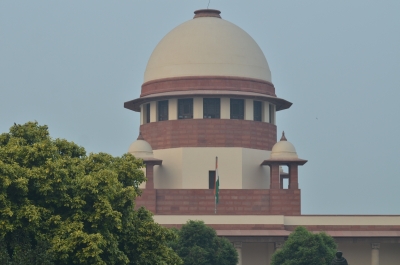Will knock the door of SC if rights of Himachal Pradesh not given by the Centre: CM
Chief Minister Sukhwinder Singh Sukhu has said that he will meet the Union Ministers to release the aid to Himachal under the Post Disaster Need Assessment (PDNA).
A bench comprising justices Sanjay Kishan Kaul and M.M. Sundresh held the chairperson of an NGO guilty of contempt for not depositing Rs 25 lakh for “scandalizing and browbeating” the apex court.

Supreme Court (Photo: IANS)
The Supreme Court on Wednesday observed that the court’s power of contempt cannot be taken away even by legislative enactment.
A bench comprising justices Sanjay Kishan Kaul and M.M. Sundresh held the chairperson of an NGO guilty of contempt for not depositing Rs 25 lakh for “scandalizing and browbeating” the apex court.
Advertisement
The bench said the Rajiv Dahiya, chairperson of NGO Suraz India Trust, has been “throwing mud” at all — including the court, administrative staff, and the state government.
Advertisement
It said Dahiya is clearly guilty of contempt of court and added, it cannot approve, his action to scandalize the court.
The top court noted: “The power to punish for contempt is a constitutional power vested with this court which cannot be taken away even by a legislative enactment.”
The apex court has issued notice to Dahiya and directed him to be present on October 7, for a hearing on the sentence. In connection with the recovery of money from Dahiya, the court said it can take place as arrears of land revenue.
The top court’s order came on Dahiya’s application seeking recall of its 2017 judgment, where costs of Rs 25 lakh, was imposed on him for filing 64 PILs over the years without any success and “repeatedly misusing” the jurisdiction of the top court.
Advertisement